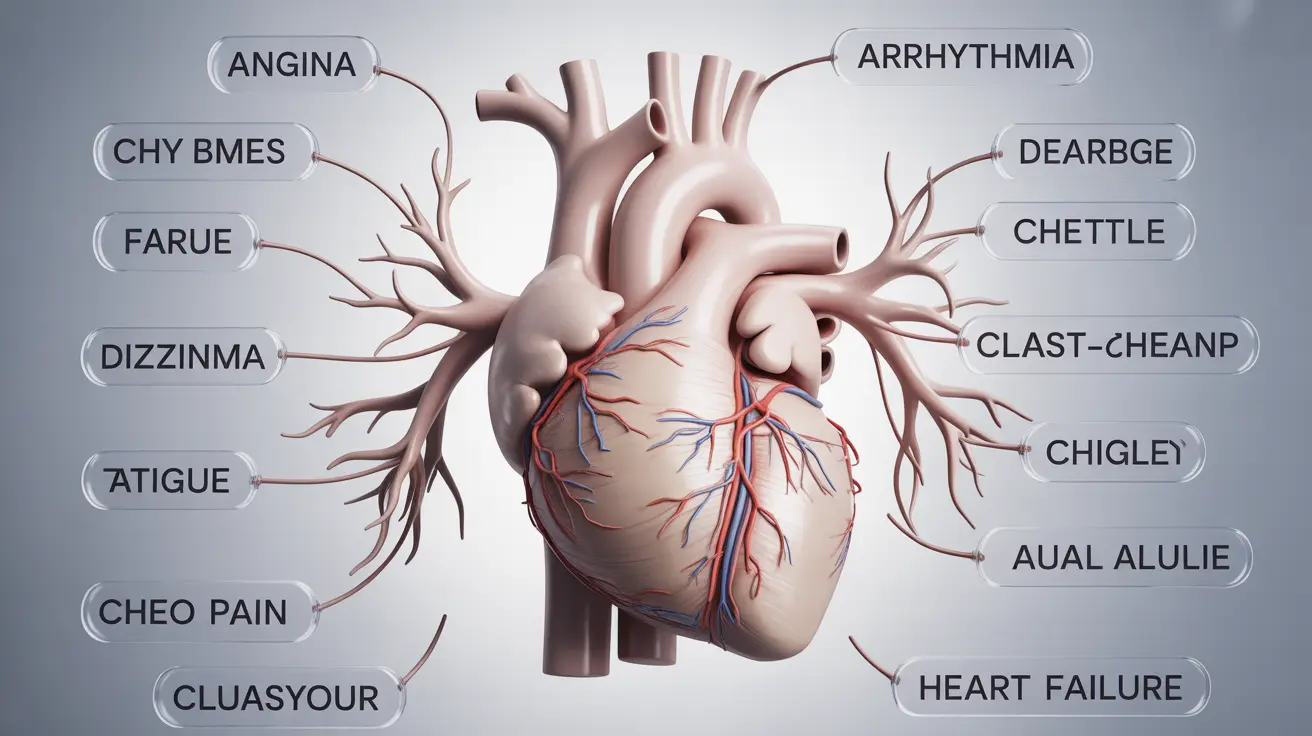Experiencing chest pain along with dizziness and fatigue can be alarming and may signal various underlying health conditions, ranging from serious cardiac issues to anxiety-related symptoms. Understanding these symptoms and knowing when to seek medical attention is crucial for your health and well-being.
In this comprehensive guide, we'll explore the potential causes of these concurrent symptoms, help you identify warning signs, and explain when immediate medical attention is necessary.
Common Causes of Chest Pain, Dizziness, and Fatigue
Several medical conditions can cause these symptoms to occur together:
Cardiovascular Conditions
Heart-related issues often manifest through this combination of symptoms:
- Coronary artery disease
- Heart attack
- Heart rhythm abnormalities
- Heart valve problems
- Pericarditis
Non-Cardiac Causes
Not all instances of chest pain with dizziness and fatigue indicate heart problems:
- Panic attacks or anxiety disorders
- Anemia
- Low blood pressure
- Dehydration
- Respiratory infections
Warning Signs Requiring Emergency Care
Certain symptoms warrant immediate medical attention:
- Severe or crushing chest pain
- Shortness of breath
- Cold sweats
- Nausea or vomiting
- Radiating pain to arms, neck, or jaw
- Loss of consciousness
Distinguishing Between Heart and Anxiety-Related Symptoms
Heart-related chest pain typically:
- Feels like pressure or squeezing
- Often occurs with physical exertion
- May radiate to other areas
- Usually doesn't improve with rest
Anxiety-related chest pain usually:
- Feels sharp or stabbing
- May occur at rest or during stress
- Typically improves with relaxation techniques
- Often accompanied by hyperventilation
Prevention and Management
Several strategies can help manage and prevent these symptoms:
- Regular medical check-ups
- Stress management techniques
- Healthy lifestyle choices
- Proper hydration
- Regular exercise (as approved by your healthcare provider)
- Balanced diet
Frequently Asked Questions
What could cause chest pain, dizziness, and fatigue occurring together?
These symptoms commonly occur together due to cardiovascular issues like heart disease, anxiety disorders, anemia, or blood pressure problems. The combination could also result from respiratory conditions or severe stress responses.
When should I seek emergency care if I have chest pain and dizziness?
Seek immediate medical attention if you experience severe chest pain, especially if accompanied by shortness of breath, cold sweats, nausea, radiation to arms or jaw, or loss of consciousness. Don't wait to get help if symptoms are severe or persistent.
How can I tell the difference between chest pain from anxiety and chest pain from a heart problem?
Anxiety-related chest pain tends to be sharp and stabbing, often improving with relaxation techniques. Heart-related chest pain usually feels like pressure or squeezing, typically worsens with physical activity, and may radiate to other areas of the body.
What are the common heart conditions linked to chest pain, dizziness, and fatigue?
Common heart conditions causing these symptoms include coronary artery disease, arrhythmias, heart valve problems, and heart attack. These conditions often affect blood flow, leading to the combination of symptoms.
Can high blood pressure or panic attacks cause chest pain and dizziness?
Yes, both conditions can cause chest pain and dizziness. High blood pressure can strain the heart and blood vessels, while panic attacks can trigger intense physical symptoms including chest tightness and lightheadedness. However, it's important to get proper medical evaluation to rule out more serious conditions.




